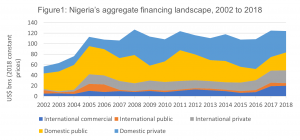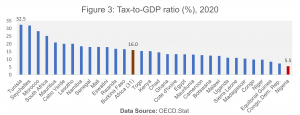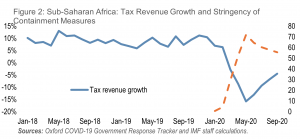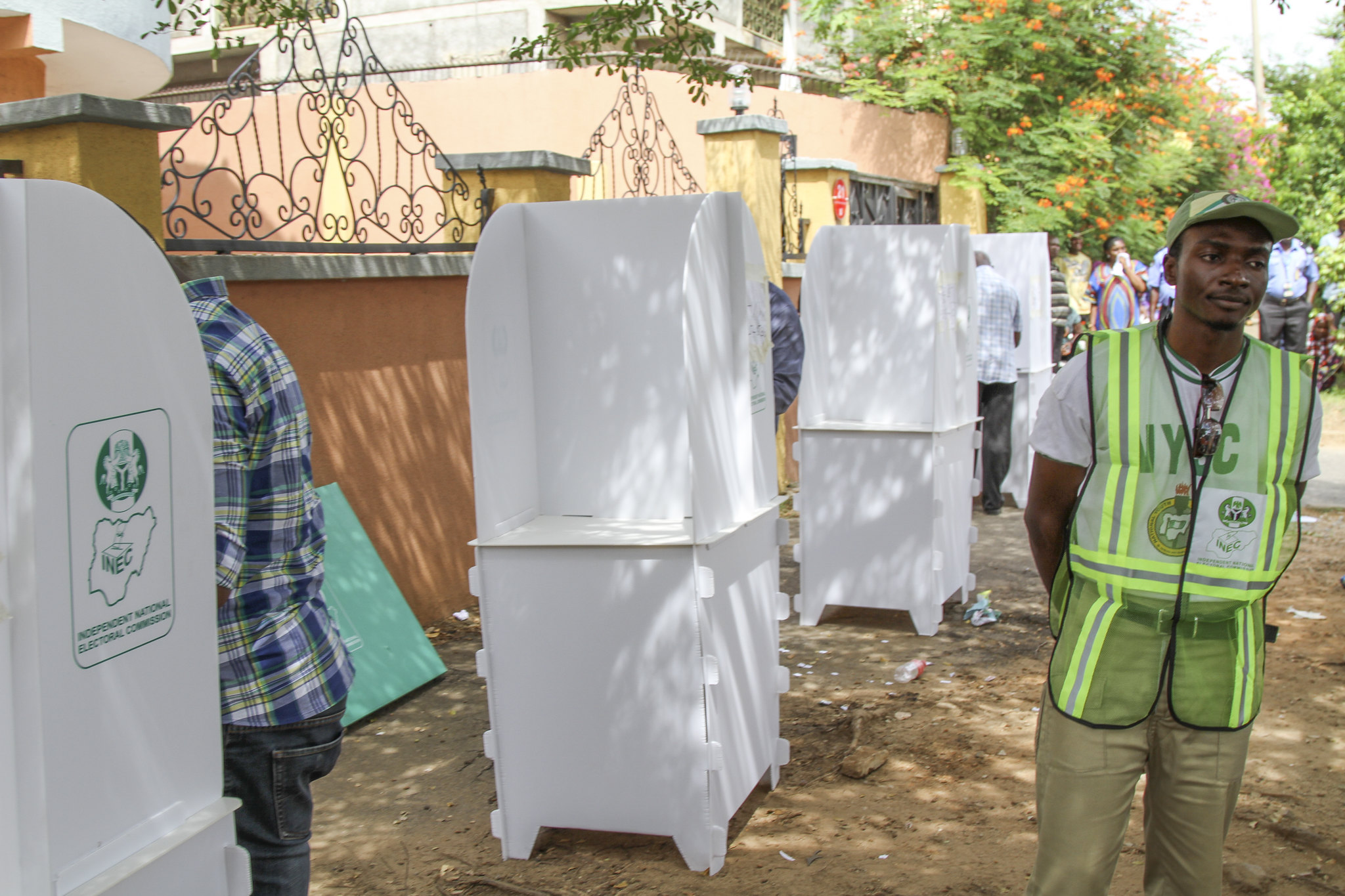Many countries are suffering a trust deficit. Governments don’t trust citizens to pay their taxes, and citizens do not trust their governments to spend the revenue wisely. Uzochukwu Alutu looks at what can be done to improve the fiscal social contract in Nigeria.
The covid-19 pandemic has had a significant impact on people’s lives and livelihoods, seriously disrupting social mobility and global supply networks. Governments were forced to impose lockdown policies that restricted livelihoods to save lives. These policies reduced economic activity, which had a negative impact on most government’s tax receipts, at a time when there was dire need for public spending on health and social welfare.
In Nigeria, this challenge is compounded by citizens’ low trust in their governments’ ability to use tax resources effectively. Unless citizens have faith in governments’ capacity to use tax resources wisely, governments will not generate the optimum amount of revenue. This restricts the ability of governments to provide citizens with the goods and services they deserve.
The importance of tax revenue
To provide public goods and services, governments need revenue, a significant percentage of which comes from taxes. The graph below shows the Nigerian government’s various sources of financing between 2002 and 2018. Domestic private finance (mostly borrowing from domestic banks) is the largest source of funding, followed by domestic sources such as tax.
Among the various financing sources, tax receipts are the one a government has greatest control over. A government can choose to raise or lower taxes and usually has complete control over how it spends the money raised. It is also the one most directly linked to citizens. People pay their taxes, and in democracies, vote with consideration about how they want those taxes spent. This feedback loop makes taxes an important source of development funding if the government is responsive to public demands.

It is important that the government has adequate funds because many goods and services can only be provided effectively and efficiently by the government. These include goods or services such as highways, streetlights, policing from which it is practically impossible to limit free riders. This makes them impossible to provide on a commercial basis. These public goods and services are essential for a functioning economy and society, so the government steps in to pay for them making it vital it has sufficient revenue.
Raising government money has become especially difficult since the covid-19 pandemic began. The next graph shows the close correlation between the fall in Sub-Saharan Africa’s tax receipts (blue line) and the stringency of lockdown measures (the orange dotted line). Yet it is perhaps more vital than ever that governments are well funded as they seek to rebuild local economies and continue to provide public services which are under increased demand.
Overcoming the trust deficit
Tax receipts in Africa are generally low, and Nigeria ranks among the lowest when compared to its African counterparts as illustrated in the graph above. In countries such as Nigeria, the weak social contract makes citizens less willing to pay their taxes in full. They don’t trust their government to provide the services they expect, so are less willing to provide them with the revenue required to do so.
Citizens have the right to demand accountability and transparency in the use of public resources by their governments. This, if correctly exercised, can enhance the effectiveness of government. Minouche Shafik, in an IMF article based on her book What We Owe Each Other: A New Social Contract, notes that the lack of a strong social contract is the underlying cause of most of the disaffection and widespread discontent expressed by citizens around the world in recent times.
Disgruntled voters have the option of voting out governments they feel don’t spend their money wisely. Politicians should therefore, for their own good, seal up the “leaky bucket” by fixing revenue collection systems and ensuring additional income is translated into tangible goods and services for the public.
The caveat, however, is that the availability of alternative sources of financing, including foreign aid and debt financing (which can be termed “captive sources”), could cause the urgency on the part of the government to respond to calls for greater effectiveness, accountability, and transparency to wane. This is especially true for resource-dependent/commodity exporting countries, like Nigeria.
Policy options for plugging the leaks
Alternative sources of funding for governments include foreign aid and debt financing. While such money might allow a government to balance the books, it may also weaken the feedback loop between government and its citizens. In such cases, although the additional funding might help supply services, it won’t help to build a social contract between the governors and the governed.
The Nigerian government has several domestic solutions to improving its revenue base which will also help to strengthen the social contract with voters. It could broaden its revenue base and assure fairer wealth allocation would be improved by the collection and analysis of reliable data. When accurate data is gathered, analysed, and deployed, it will have an impact on government’s capacity to increase its revenue base. An IMF blog post from 11 February 2021 indicated that there is a direct correlation between e-governance capabilities and foreign direct investment. Efficient government could become a money earner, not just a money manager.
Spending wisely should be just as important as the need to collect smartly. In this regard, Nigeria should revisit the Oronsaye report which in 2012 recommended the abolition or merger of 102 government agencies and parastatals, but has not been implemented.
Sensible tax earmarking (tax-for-services) could help build trust around the political salience of taxation. Examples of this include ring-fencing tax from tobacco to pay for health care, or the adoption of presumptive tax approaches in localities with high levels of informality to broaden the tax base and promote voluntary taxpayer compliance through targeted service provision.
On the side of the citizen, there is a need to improve engagement in governance processes. One method to do this is through voting and advocating for fundamental electoral reforms because changes do not occur automatically but are entrenched in complicated power and political relationships. The process by which leaders emerge is crucial to the discourse of good governance and ought to be of utmost concern to every citizen.
Governments are more likely to use tax resources effectively when the social contract is strong and when they have little or no access to ‘captive’ sources of income. The only option available for building a strong social contract in a democracy is through the voting process.







The graph of Tax-to-GDP is really telling. Never knew we are this far off, especially when compared with similar big economies in Africa such as South Africa and Morocco.
Also on the govt part, to increase the revenue base, as a first step the govt could consider improving the capacity of the revenue authorities in terms of system and infrastructure of data collection, for instance, remote workers in Nigeria who escape taxes.